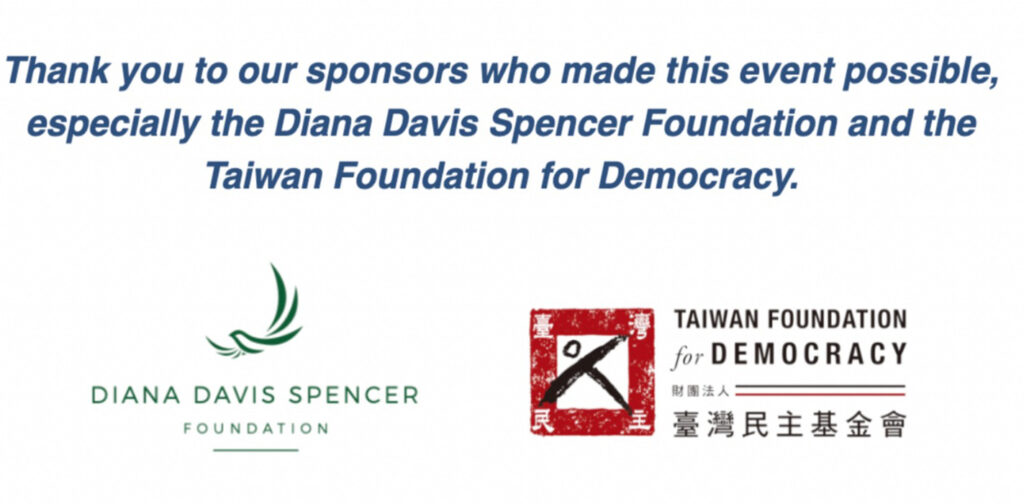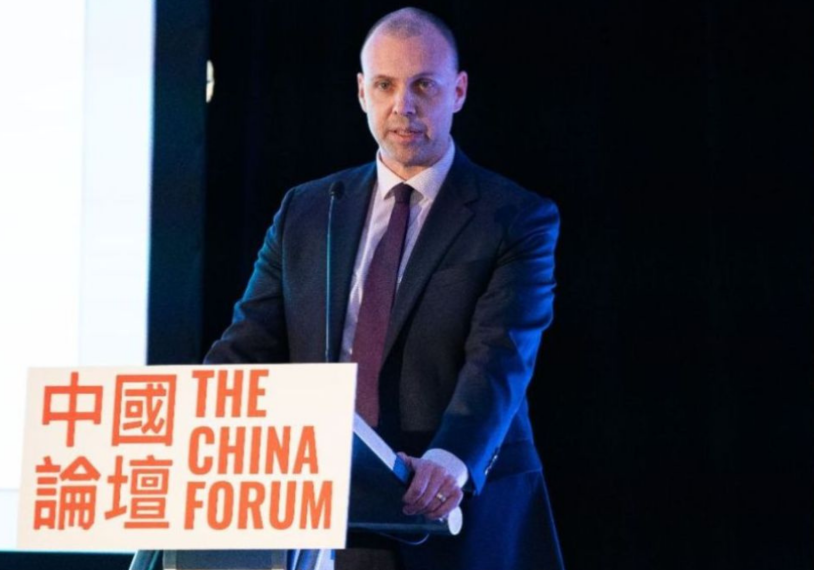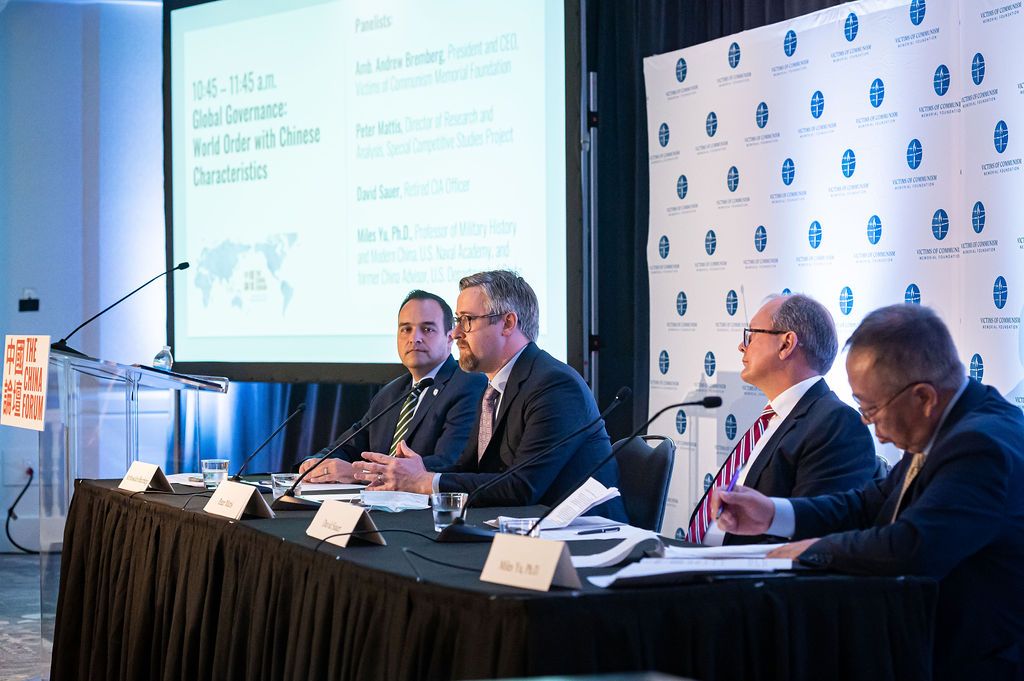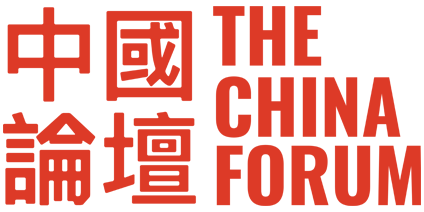2021 China Forum
Highlights from our China Forum 2021
VOC Hosts Eighth Annual China Forum
On December 6th, the Victims of Communism Memorial Foundation (VOC) held its eighth annual China Forum convening scholars, international affairs experts, policymakers, and supporters from around the globe to participate in hard-hitting discussions about the increasingly aggressive nature of the People’s Republic of China, the Chinese Communist Party (CCP), and key issues in US-China relations. This year’s China Forum was viewed by an in-person and virtual audience of over 4,600 people who heard from the world’s leading experts on China and the ruling Communist Party.
Since 2014, VOC has provided a unique platform, unlike any other in DC, for experts to educate American leaders and engage in frank discussion about the immediate danger posed to the world liberal democratic order by the CCP. The 2022 China Forum featured five panels on Beijing’s repressive ethnic policies, the challenges of economic integration with China, and the CCP’s foreign policy and power projection. Watch the full China Forum.

Daniel Tobin, Renowned China Scholar, Delivers China Forum Keynote
“Xi Jinping describes the PRC’s success as having moved in a few short decades from poverty and weakness to the number two economy in the world as a vindication of Marxism and of scientific socialism.” -Daniel Tobin
This year’s keynote address was given by Daniel Tobin, a renowned China scholar and a member of the China studies faculty at the National Intelligence University. Watch the full China Forum keynote address.


Technology, Authoritarianism, and Big Tech’s Compliancy
The unique pairing of an authoritarian government with highly advanced technology has resulted in the world’s most sophisticated police state, and the CCP is determined to export these measures to regimes around the world. This panel will discuss the extent to which the CCP seeks to disrupt global norms governing the use of technology to repress people both at home and abroad and how Silicon Valley is unwittingly or wittingly complicit.
Emily de La Bruyère
Co-Founder, Horizon Advisory
Ian Easton, Senior Director
Project 2049 Institute
Nathan Picarsic
Co-Founder, Horizon Advisory
Dr. Adrian Zenz,
Senior Fellow and Director, China Studies, Victims of Communism Memorial Foundation
Global Governance: World Order With Chinese Characteristics?
Peter Mattis
Director of Research and Analysis, Special Competitive Studies Project
David Sauer
Retired CIA Officer Miles Yu, Ph.D., Professor of History, U.S. Naval Academy
Amb. Andrew Bremberg
President and CEO, Victims of Communism Memorial Foundation (moderator)


China’s Frontiers: The Ccp and Colonial Legacies
How do we view China – a nation, a civilization, or an empire? In 1949, the CCP inherited a vast landmass that encompassed countless cultures, languages, and ethnic groups. Mao implemented a Leninist system that promised many of these unique groups autonomy within a socialist state. However, under Xi Jinping and his “second-generation ethnic policies,” it seems that the CCP has resurrected the same kind of colonialism that was practiced by the empires of the 19th century. This panel will focus on the crises facing the nations that live along China’s historical frontiers, namely the Turkic peoples, Tibetans, and Mongols, as well as how Hong Kong fits into this discussion.
Bhuchung Tsering
Interim President, International Campaign for Tibet
James Millward, Ph.D.
Professor of Inter- societal History, Walsh School of Foreign Service, Georgetown University
Jeffrey Ngo
Hong Kong Activist Historian and Ph.D. Candidate, Georgetown University
Olivia Enos
Senior Policy Analyst in the Asian Studies Center, The Heritage Foundation (moderator)
Supply Chain and Forced Labor
Reports published in the past year by VOC have presented new evidence that hundreds of thousands of indigenous laborers in Xinjiang are being forced to pick cotton and attend “vocational training,” and being deported to other parts of the country as part of a coercive, state-mandated labor transfer and “poverty alleviation” scheme, with possibly drastic consequences for global supply chains. This panel will discuss this evidence, its implications, and what can be done to effect change.
Allison Gill
Forced Labor Director, Global Labor Justice International Labor Rights Forum
Michael Sobolik
Fellow in Indo-Pacific Studies, American Foreign Policy Council
Adrian Zenz, Ph.D.
Senior Fellow and Director, China Studies, Victims of Communism Memorial Foundation
Ethan Gutmann
Research Fellow in China Studies, Victims of Communism Memorial Foundation (moderator)


Finance: The Myth of Chinese Financial Hegemony
William Browder
CEO, Hermitage Capital Management
Dexter Roberts
Senior Fellow, Atlantic Council
Roger Robinson
President and CEO, RWR Advisory Group
Jillian Melchior
Writer, Wall Street Journal (moderator)
Thank you to our sponsors who made this event possible, especially the Diana Davis Spencer Foundation, The Taiwan Foundation for Democracy, and Mr. Brian Mcnally


Mr. Brian Mcnally
- Gen. Arnold Fields
- Mr. John Quackenboss
- Mr. William Greene
- Ms. Rushan Abbas
- Prof. Jody Gatwood
- Mr. Charles Beeman
- Mr. Jerry Hendrickson
- Gen. Edwin Meese
- Mr. Alan Adler
- Mr. Randal Teague
- Ms. Mike Bettridge
- Mr. Daniel Ferguson
- Ms. Danielle Lopez
- Mr. Duane Schlegel
- Chrissy Spaziano
- Mr. Roger Kwok










































































